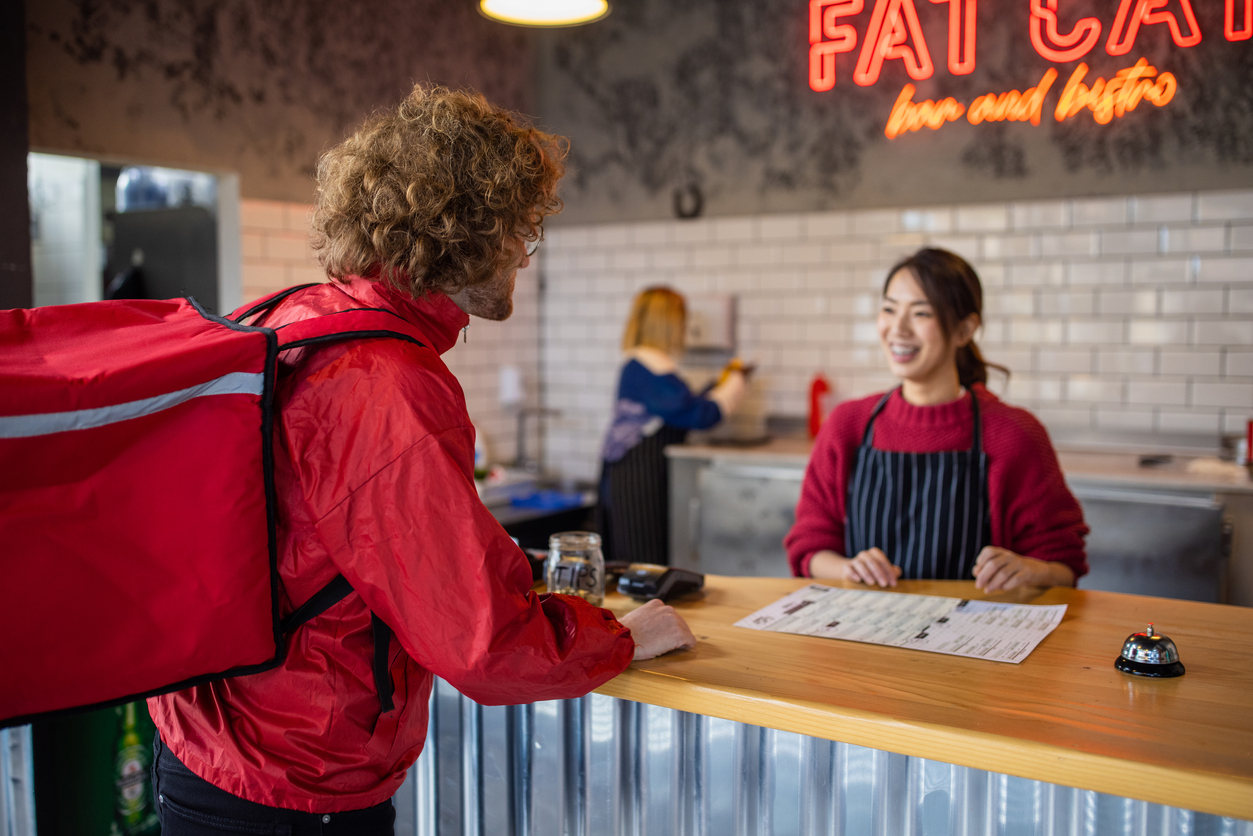Have you ever wondered how your restaurant impacts the environment? Or if adopting sustainable practices can reduce your costs and attract more customers?
Focusing on sustainability can have a unique and positive impact on restaurant operators. From reducing food waste to using ethically sourced ingredients, your brand can become more sustainable and profitable. Today, more customers are looking for restaurants that prioritize sustainability when they choose where to dine.
Let’s look at some sustainability practices you can implement to ensure long-term success.
Choose Sustainable Food Packaging
Transitioning to sustainable food packaging can significantly bolster your restaurant's eco-conscious image. Here’s how to choose the best options:
- Biodegradable Packaging: Ideal for single-use items, biodegradable packaging is perfect for takeout orders that require a quick yet eco-friendly solution.
- Recyclable Packaging: Encourage recycling using paper, cardboard, or certain plastics. It can reduce waste and promote sustainability among your staff and customers.
- Reusable Packaging: While not suitable for delivery, reusable packaging (like glass or metal containers) is excellent for in-house dining or takeaway orders.
Once you switch to sustainable packaging, make it a key part of your brand narrative. Promote eco-friendly initiatives on your website, social media, and email newsletters to attract environmentally conscious diners.
Lower Delivery Carbon Emissions
Food delivery is essential for modern restaurants but can significantly contribute to carbon emissions. Here’s how to mitigate this impact:
- Optimize Delivery Routes: Use delivery route optimization software to ensure drivers take the most efficient paths. Prioritize nearby orders for quicker, eco-friendly deliveries.
- Consolidate Orders: Encourage drivers to deliver multiple orders in one trip whenever possible. This approach reduces emissions per delivery and enhances operational efficiency.
- Electric Delivery Vehicles: Invest in electric delivery cars, bikes, or scooters. These options lower emissions and can be more cost-effective in the long run due to reduced fuel expenses.
By implementing these strategies, your restaurant can significantly reduce its carbon footprint while enhancing its reputation as a sustainable business.
Manage Food Waste
Managing food waste is crucial for both cost savings and environmental impact. Here are practical steps to consider:
- Implement a First-in, First-out (FIFO) inventory system to ensure ingredients are used before they spoil.
- Utilize robust inventory management software to track stock levels and optimize ingredient ordering.
- Partner with local charities or food banks to donate edible but unsellable food. This practice reduces waste and benefits your community.
- Consider adjusting portion sizes if you notice significant leftovers on customers' plates. Offering smaller options can reduce waste and allow customers to order only what they can finish.
By being mindful of food waste, you can cut costs and lessen your environmental impact while maintaining the quality of your offerings.
Introduce Eco-Menu Options

Incorporating healthier, eco-conscious options into your menu is a growing trend in food sustainability. Here’s how to make your menu more sustainable:
- Adding vegan, vegetarian, or plant-based options caters to a growing demographic and reduces your restaurant’s environmental footprint.
- Sourcing ingredients locally and seasonally reduces transportation impact and ensures freshness, leading to higher-quality dishes.
- Consider creating a rotating menu that showcases the best seasonal ingredients.
- Include more whole grains, legumes, nuts, and plant-based oils in your recipes. These ingredients generally have a lower environmental impact than meat and dairy products.
These options benefit the environment and meet the increasing demand for health-conscious choices.
Support Energy-Efficient Restaurant Equipment
Upgrading to energy-efficient equipment is one of the best investments to reduce energy consumption and operating costs. When replacing appliances, opt for Energy Star-certified models that use less energy while maintaining performance.
Second-hand restaurant equipment can be a cost-effective option. Many barely-used items are available at a fraction of the price of new equipment. Investing in energy-efficient equipment helps reduce one's carbon footprint and lowers energy costs over time.
Recycle And Compost
Recycling and composting are effective ways to minimize waste. Here’s how to incorporate these practices:
- Set up a comprehensive recycling system, including marked glass, plastic, and paper bins. Ensure your staff is trained in waste sorting and encourage customers to dispose of their waste correctly.
- Establish a kitchen composting system for organic food scraps. This practice reduces landfill waste and provides nutrient-rich soil for local farms or your restaurant garden.
Implementing these practices saves money on waste disposal and enhances your reputation as an environmentally responsible business.
Use Eco-Friendly Cleaning Solutions
Switching to eco-friendly cleaning products helps maintain a clean environment while protecting the planet. Opt for natural, biodegradable cleaning products that are free of harmful chemicals. These products are safer for your staff and better for the environment.
Choose cleaning supplies with green certifications to ensure they meet high environmental standards. Although investing in eco-friendly cleaning products may have a higher upfront cost, they are a healthier choice for your restaurant and contribute to long-term sustainability.
Reduce Water Usage
Water conservation is vital for sustainability; small adjustments can lead to significant savings. To minimize water wastage, use low-flow faucets and motion-sensor taps. Energy-efficient dishwashers that require less water per load can also contribute to savings.
Even minor leaks can waste substantial amounts of water over time, so promptly repair any plumbing issues to prevent unnecessary waste. Adopting water-saving strategies will lower utility bills and contribute to a more sustainable environment.
Furnish Your Restaurant With Sustainable Materials
The materials used to furnish your restaurant can significantly impact its sustainability. Choose sustainable things to minimize your environmental impact, such as:
- Non-toxic paints
- LED lighting
- Energy-efficient lighting solutions
- Recycle material
- Wood or Bamboo furniture
These changes can reduce waste, enhance your restaurant’s sustainability, and create a more appealing atmosphere for customers.
Market Your Sustainability Efforts Online
Digital marketing is a powerful tool for promoting sustainability efforts without contributing to waste. Consider the following:
- Share your sustainable practices on social media, your website, and email newsletters.
- Offer online ordering and delivery to encourage customers to order online, which reduces paper waste and provides a more convenient service.
Online marketing is cost-effective and allows you to reach a broader audience while aligning your restaurant’s brand with sustainability.
Boost Your Restaurant’s Impact With Checkmate Today!
Checkmate empowers you to provide a seamless online ordering and delivery experience. Its data-driven insights enable you to make informed decisions that reduce waste, improve delivery times, and enhance your restaurant's overall impact. Get a demo to see how our technology can help your brand maximize profitability while still being environmentally friendly.





